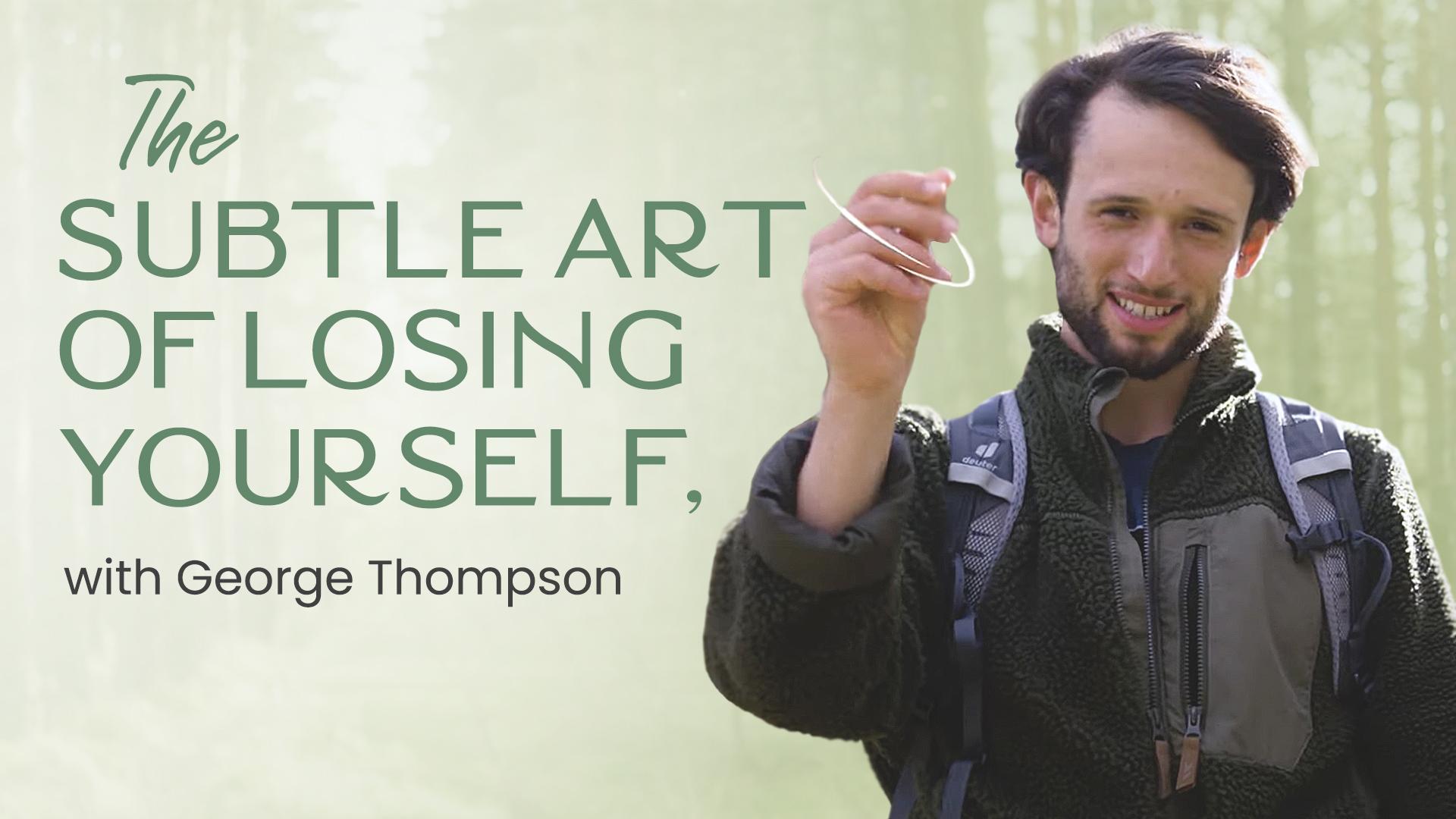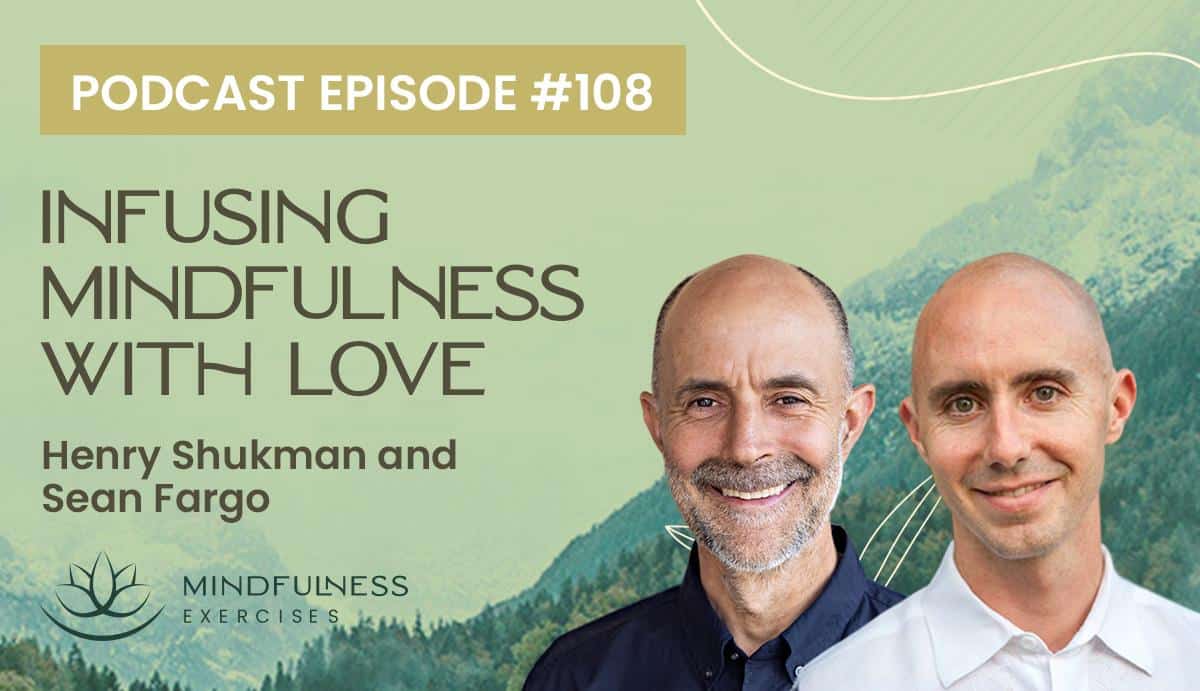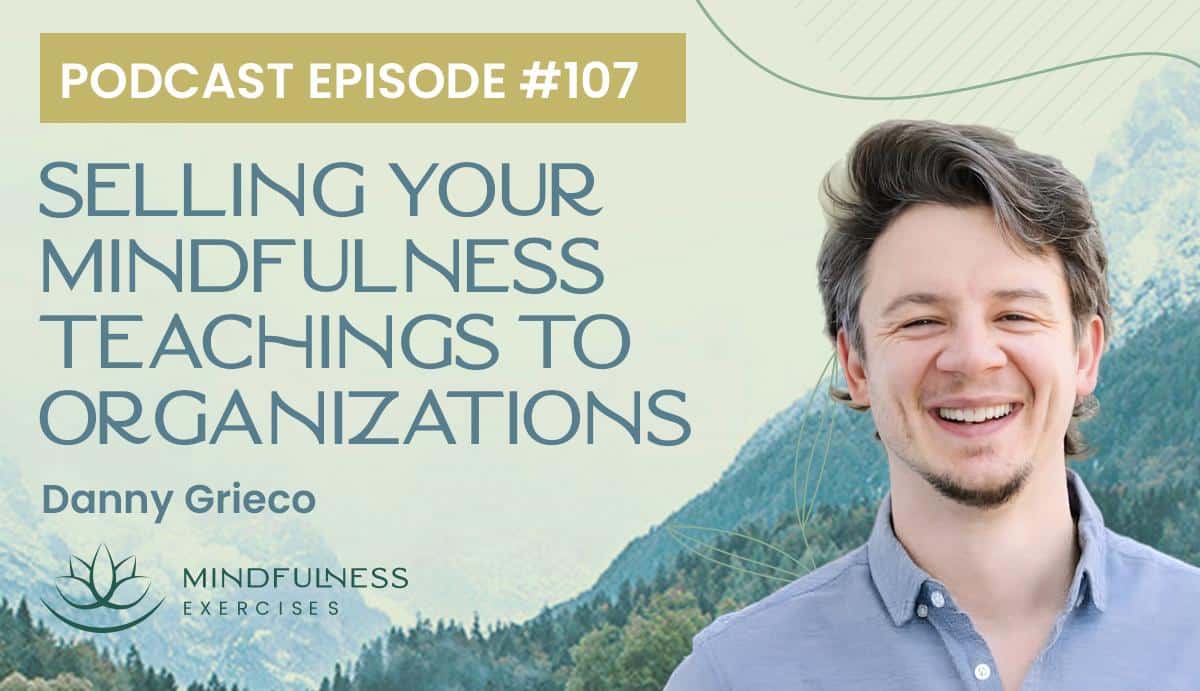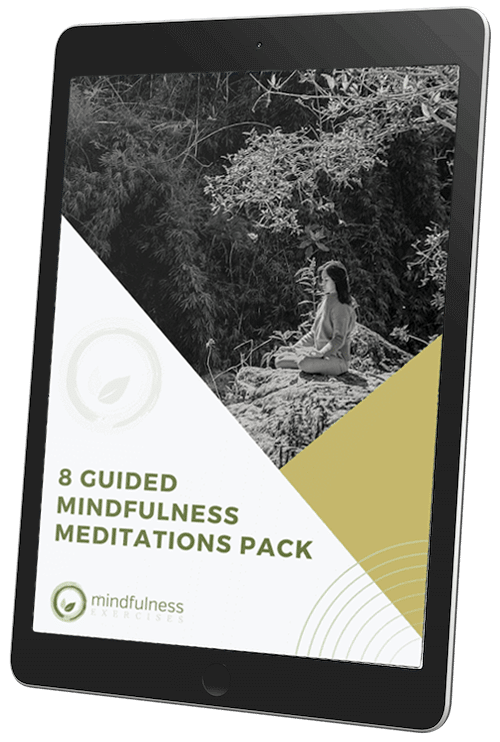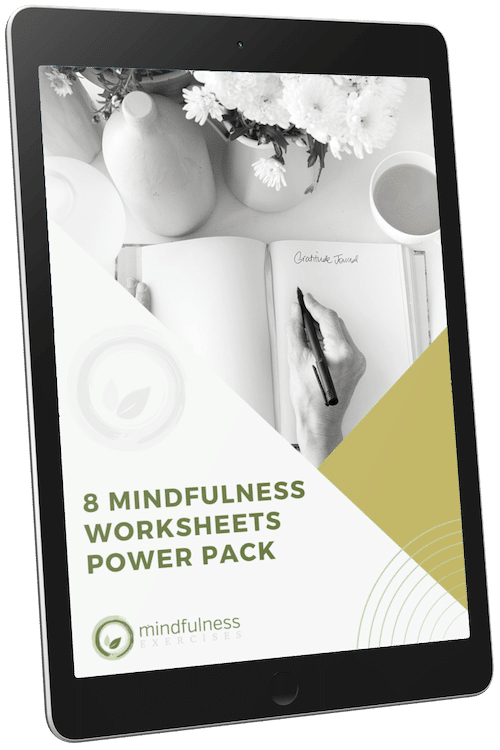Listen now
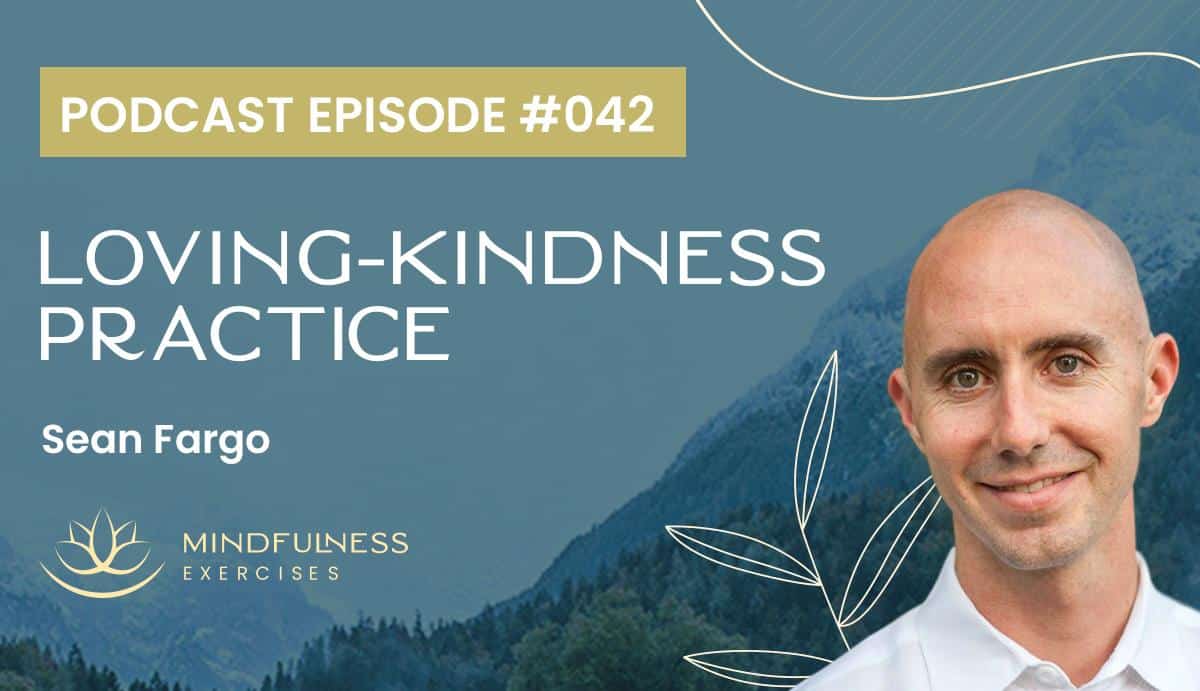
Do you feel you have empathy and compassion for all living beings? What about those you can’t seem to get along with? And does your compassion extend to yourself?
The non-judgmental attitude of mindfulness practice is not to be confused with avoidance or non-caring. Rather, mindfulness encourages the cultivation of empathy, loving-kindness and compassion. One way to do this is with loving-kindness, or metta, meditation.
In this episode, Sean Fargo shares his personal experience with this compassion practice and offers practical advice to those who are practicing, or teaching, these heart-opening meditations.
This talk is a brief excerpt of Sean Fargo’s weekly mentorship session for those enrolled in our Mindfulness Meditation Teacher Training Program. Learn more about this unique, online, self-paced certification program at mindfulnessexercises.com/certify
What You’ll Learn in This Episode:
Show Notes:
Loving-kindness practice doesn’t always feel good, and that’s ok
We might have a misconception that compassion practices are supposed to be light-hearted, feel-good meditations. But it can hurt to open the heart, especially as we become more aware of our pain and that of all beings. Mindfulness and loving-kindness practice help us learn to stay present so we may work through these often uncomfortable emotions.
“In these meditations, what I often say is ‘allowing the emotion, allowing the feelings to stay, allowing them to intensify, allowing them to change, allowing them to go.’ Like, full allowance. Full allowance. Because a lot of us only allow things to happen if we want them to happen. [...] That’s not full allowance. Full allowance is [...] surrendering your illusion of control.”
The distinction between loving-kindness and compassion
Classically, there is a distinction between loving-kindness (metta) and compassion (karuna). The first is a feeling of friendliness while the other involves taking action to minimize suffering. Understanding these differences and naming them can help us bring these feelings to fruition - even in circumstances where fear, impatience, anger or uncertainty is present.
“Loving kindness in the face of suffering is compassion. You put these two ingredients together, of loving-kindness and suffering, and it blends into compassion.”
Why it’s important to imbue our compassion with wisdom
Compassion and wisdom are classically described as two wings of a bird. We won’t fly far if both are not strengthened simultaneously. Compassion without wisdom can make the heart heavy and often leads to burnout. Wisdom helps us stay balanced by reminding us our suffering is not ours alone, that there’s a wider perspective possible, and that all things are changing.
“Equanimity is sort of that combo: loving-kindness and wisdom. Sometimes the wisdom aspect can be looked at around this as ‘this is the way things are, things are always changing, am I taking this personally, how can I look at this from a much bigger lens?’”
Why compassion does not mean condoning bad behavior
During metta meditation, we practice offering compassion to ourselves, to loved ones, to those we barely know, and even to those we find challenging. But are we condoning bad behavior by sending loving-kindness to those who perpetuate harm? Sean recounts a story of two wolves, as told by Rick Hanson, a past guest on the mindfulness exercises podcast. He reiterates that it’s possible to maintain strong boundaries, yet still hold everyone in our hearts.
“It’s not about condoning everything, or everyone, but remembering that a lot of people do really stupid things because of their own suffering and delusion. And if we knew their whole story we may risk falling in love with them. And there’s also gray areas in this, but the point is, we’re not condoning violence, we’re not condoning the act, but can we still have care for the person who did something regrettable?”
When to practice for yourself and when to practice for others
Some like to begin metta practice by sending well-wishes to the self, for we can only love others to the extent we love ourselves. On the other hand, some practice by putting the self last, a means of overcoming our habitual me-first focus. Sean’s advice is to start with the method that’s easiest, for what’s important is learning to embody a felt sense of care.
“The intention is to connect with the heart and that sense of care, and go in baby steps. So, for most people that’s someone else. For some people metta for self might be the hardest, so maybe that’s last, rather than second. Everyone is going to be different. The self can be problematic. And it can even change day to day, or hour to hour. [...] It’s not static for any given person.”
Embracing heart-opening as an ongoing process
When it comes to self-compassion and self-love we’re often quite hard on ourselves, expecting instant change. But opening the heart is a process, and one that rarely happens overnight. Instead, we can ease into the practice at a pace that allows the heart to expand gradually. We can spend a lifetime working with increasingly challenging objects of meditation, whether ourselves or others.
“I think it’s helpful to emphasize that, ‘can we open to a sense of care to whatever extent we can?’ It’s not like we have to love ourselves fully, unconditionally, right now. But can we even open to the possibility of care for our self, or can we just wish our self a simple sense of care, or wish our self warmth, or a little more care than normal, or a little more benevolence?”
Loving-kindness phrases and the power of words
Metta meditation is commonly practiced in the form of a wish. ‘May we be safe,’ ‘may we be well,’ ‘may we be happy’ are just a few. While the words we choose matter, it’s not the words themselves but the feelings they point to that are of greatest importance. Whether choosing our own phrases, or being guided by another, we want to be mindful of how the words feel in our body.
“In general, it’s fine to find phrases that you feel. So, to play around with the language a little bit or the wording to find something that really suits you, that you can resonate with, and that you can actually feel around the heart, around the chest. [...] Ultimately it’s about the feeling so we can use the words as a tool, but in general, it’s usually just about the feeling. So, whatever wording allows you to access your heart and that care is the main thing.”
Bringing loving-kindness to our mindfulness practice
Loving-kindness can be practiced outside of metta meditation. In fact, we can bring moments of loving-kindness and care to any and all of our mindfulness practices, in formal mediation or throughout our day. One way to do this is to sprinkle in well-wishes at the start, middle or end of any practice.
“I like ending meditations with some sort of heart practice of some kind. And so, kind of like a loving-kindness practice but breath related. Where it’s like, ‘may we breathe with ease, may we breathe with kindness for our surroundings, may we breathe with care or connection with the world, may we breathe with gratitude for each breath.’”
Additional Resources:

About Sean Fargo:
Sean Fargo is a former Buddhist monk and the founder of Mindfulness Exercises. The online platform, which has shared free and premium mindfulness resources with over 3 million people worldwide, has now certified over 500 Mindfulness Teachers.
Sean is the lead instructor for the teacher training program, a unique self-paced approach which invites world-renowned mindfulness teachers to share their insights and experiences. Sean has taught mindfulness and meditation for corporations including Facebook, Google and Tesla and for health and government organizations, prisons and hospitals around the world.


